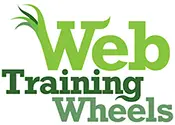Trying to make your WordPress site faster is an already technically complex process, further obscured by all the jargon you have to understand. Here’s an overview of some commonly used site “speed up” terms. I hope it helps demystify the process!
Browser caching
Imagine your web page is like a puzzle. The puzzle pieces are CSS, JavaScript and image files. When you visit a web page, the browser has to retrieve all those puzzle pieces from the server, then assemble them correctly to make your web page.
Browser caching allows the browser to keep some of those puzzle pieces in place, that is, stored in the browser itself (on your computer), so that the next time you visit that page, it doesn’t have to fetch them again from the server.
The purpose of browser caching is to make repeat visits to the same site much faster for the visitor.
Read more →










